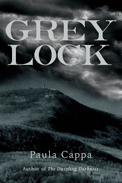
 |
Alexei Georg finds an anonymous piano sonata hidden in his deceased father's sea chest. Claiming it as his original work, Alexei names it October Sonata, and it wins him a prestigious musical award. Unfortunately a dark force is connected to the mysterious composition. Alexei leaves for Russia to record beluga whale songs for a new symphony that he'll complete during his stay at Greylock Music Hall on Mount Greylock. Prior to his trip, Alexei leaves Carole Ann, his jealous and overbearing wife, for the beautiful Lia Marrs. While sailing the White Sea in search of whale pods, Alexei learns that Carole Ann has been murdered and he has been pegged as a prime suspect. Even though evidence is sketchy at best, Alexei has a bigger problem on his hands battling with the menacing force that constantly looks for ways to inhabit Alexei's body.
Cappa's latest is nothing less than a mind-boggling mystery. "The result of several years of research, writing, rewriting, and perseverance," The award-winning author's narrative is an interesting combination of classical works and whale facts that are tightly woven into a flurry of literature. While dropping mentions to Louisa Alcott's Little Women and Anaïs Nin’s Delta of Venus, Cappa highlights quotes and titles (both books and movies) that reflect the works of the late great detective writer Raymond Chandler. Cappa includes a well-defined cast that is placed within the descriptive background of Massachusetts and the Russian White Sea. Cappa strongest writing component is in the way she utilizes dialogue, always keeping an elusive edge to her characters' personas. Cappa's plot is replete with all the wonderful trappings of a romance-laced mystery—unexpected twists and turns and plenty of red herrings. Greylock has the potential of being earmarked as another award winner.
RECOMMENDED by the US Review